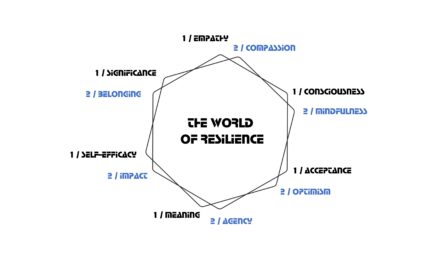The term resilience is used today in many contexts and scientific fields – including physics, sociology and healthcare. Colloquially, it is often translated as „resistance”.
Originally, the term resilience comes from materials science and describes the ability of a material to return to its original state even after extreme stress. For example, you can stretch a rubber band to a certain degree, and when you let go of it, it returns to its original state. The same applies to the branch of a tree, or a fishing rod, for example.
And what does all this have to do with us as human beings?
Stress at work, at university or at school. The compatibility with our private life. The small and large conflicts, crises and catastrophes of everyday life. And on top of all that, now pandemics, wars, economic and financial crises. If all this is kept within limits, most people still manage to deal with these challenges in a positive way. With too many challenges and stresses, however, we gradually get out of balance and, in the worst case, a downward spiral develops that leads to exhaustion and depression and at the same time can trigger or promote numerous other illnesses.
In humans, resilience describes the psychological ability of individuals or groups to master difficult life situations such as conflicts, crises or disasters without permanent impairment and, in the best case, to emerge from them stronger.
So the most exciting thing about us humans is our ability to learn. And that is why resilience expert Sebastian Mauritz has suggested replacing the term resilience with Prosilienz® – and has registered this term as a trademark. Because when we humans successfully overcome a crisis, we grow from it. So our resilience increases as we use it. Great, isn’t it?
And this leads us to two more exciting metaphors to better understand what this abstract term is actually about:
Resilience can be described as a kind of muscle that can be trained. In the beginning you can only lift a few kilos. But through constant training, they become more and more. That is why it is worthwhile to train our resilience muscles.
Another way to better conceptualise resilience is to think of it as our psychological immune system. And just like our physiological immune system, the stronger it is, the better it can protect us from environmental influences. Except that it’s not about our body, it’s about our soul. The more resilient we are, the more likely we are to be able to ward off the stresses that impact our soul and thus our psychological health. And just as we need to strengthen our physical immune system so that it can protect us well, we should do the same with our psychological immune system.
This makes it clear that resilience does not develop on its own, but that we have to do something about it. So the best thing you can do is to take a look at our training section to find out how you can increase your personal resilience.





